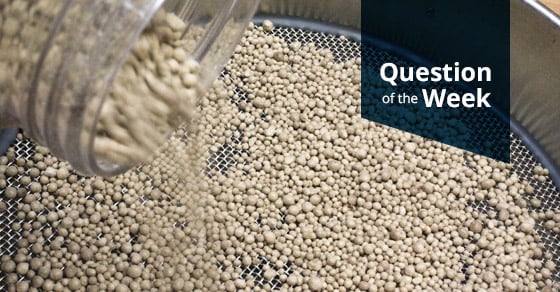FEECO’s lab technicians perform a variety of tests prior to processing a material, during processing, and after agglomerates are produced in the lab. The list below highlights some of the most common tests performed at FEECO:
- Attrition– determines the amount of product that will break down into fines.
- Crush strength– determines the strength of the pellet, or how much pressure it takes to crush the pellet completely.
- Green/wet crush strength– these tests have the same goal as crush strength, but are performed on a wet pellet prior to drying.
- Compression– looks at how the agglomerated material behaves under stress as a whole, instead of just as a single pellet.
- Bulk density– measures the density of the agglomerates, an important factor in sizing equipment according to material and processing needs.
- Physical characteristics– microscope use reveals a material’s physical characteristics unbeknownst to the naked eye, such as surface quality and shape.
- Solubility– indicates how/if a material will dissolve in water.
- Sieve analysis– measures particle size distribution, or what percentage of on-size pellets are produced from the agglomeration process.
- Flowability– reveals how agglomerates move as a unit, an important factor in the design of material handling equipment.
- Moisture content– measures the amount of free moisture in agglomerates.
- Temperature– records temperature to ensure material is within the desired temperature range. Temperature is particularly valuable in thermal testing applications.
Lab tests vary per discretion of the lab technician and additional/miscellaneous tests may be performed, depending on each unique material sample, processing requirements, and desired end-product.
For more in-depth information, see our blog post In the Lab: A Detailed Look at FEECO’s Testing Capabilities.


